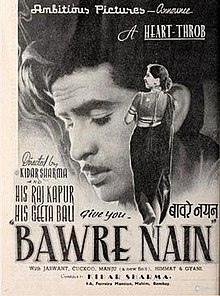
Raj Kapoor, also known as Ranbir Raj Kapoor, was an Indian actor, film director and producer, who worked in Hindi cinema. He is considered one of the greatest and most influential actors and filmmakers in the history of Indian cinema, and has been referred to as The Greatest Showman of Indian Cinema and as the Charlie Chaplin of Indian Cinema.

Prabodh Chandra Dey, known by his stage name Manna Dey, was a renowned Indian playback singer, music director, and musician. He had a classical music background, being part of the Bhendibazaar Gharana and receiving training under Ustad Aman Ali Khan. Manna Dey is widely recognized as one of the most versatile and celebrated vocalists in the Hindi film industry, and is often acknowledged for his significant contributions to integrating Indian classical music into Hindi commercial cinema. As a musician, Dey is particularly acclaimed for incorporating Indian classical music elements into a pop musical framework, a contribution that played a pivotal role during the golden era of Hindi cinema.
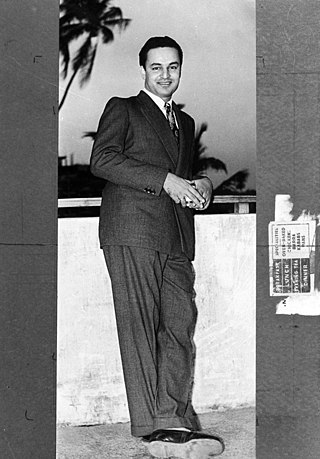
Mukesh Chand Mathur, better known mononymously as Mukesh, was an Indian playback singer. Mukesh is considered to be one of the most popular and acclaimed playback singers of the Hindi film industry. Amongst the numerous nominations and awards he won, his song "Kai Baar Yuhi Dekha Hai" from the film Rajnigandha (1973) won him the National Film Award for Best Male Playback Singer.
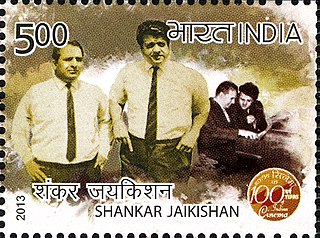
Shankar–Jaikishan, were an Indian composer duo of the Hindi film industry, working together from 1949 to 1971. They are widely considered to be one of the greatest ever music composers of the Hindi film industry.

Roshan Lal Nagrath, known mononymously as Roshan, was an Indian esraj player and music director. He was the father of actor and film director Rakesh Roshan and music director Rajesh Roshan and paternal grandfather of Hrithik Roshan.
Rajkumari Dubey, better known by her first name, Rajkumari, was an Indian playback singer who worked in Hindi cinema of 1930s and 1940s. Best known for her songs, "Sun Bairi Baalam Sach Bol Re" in Bawre Nain (1950), "Ghabaraa Ke Jo Hum Sar Ko Takraayan" in Mahal (1949) and "Najariya Ki Maari" in Pakeezah (1972).

Geeta Bali was an Indian actress who worked in Hindi films. Bali is regarded among the finest actresses in the history of Indian cinema, Bali acted in over 75 films in a career spanning over two decades. She was twice nominated for Filmfare Awards.
Anwar Hussain, known by the mononym Anwar, is an Indian playback singer.

Apradhi (transl. Criminal) is a 1974 Indian Hindi-language action drama film directed by Jugal Kishore, with the script written by R.K. Banerjee and T.N. Sharma. The film stars Yogeeta Bali, Kiran Kumar and Dev Kumar. The soundtrack was composed by Usha Khanna and features playback singers Suman Kalyanpur and Mukesh. It was released on the EMI Records label.

Kidar Nath Sharma, also Kedar Sharma, was an Indian film director, producer, screenwriter, and Lyricist of Hindi films. While he had great success as a director of movies including Neel Kamal (1947), Bawre Nain (1950) and Jogan (1950), he is most remembered for starting the acting careers of popular Bollywood actors like Madhubala, Geeta Bali, Raj Kapoor, Mala Sinha, Bharat Bhushan and Tanuja.
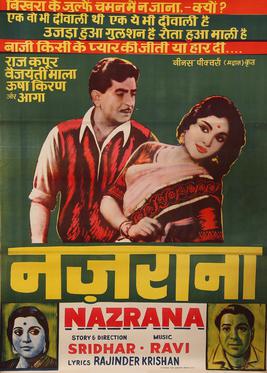
Nazrana (transl. Gift) is a 1961 Indian black-and-white Hindi-language melodrama film produced by S. Krishnamurthy and T. Govindarajan and directed by C. V. Sridhar in his Hindi directorial debut. The film stars Raj Kapoor, Vyjayanthimala, Usha Kiran in love triangle, while South Star Gemini Ganeshan has an extended cameo appearance. The music is by Ravi. The Mohammed Rafi song "Baazi Kisi Ne Pyar Ki Jeeti Ya Haar Di", which was picturised on Raj Kapoor and it was one of the popular sad songs of that era.
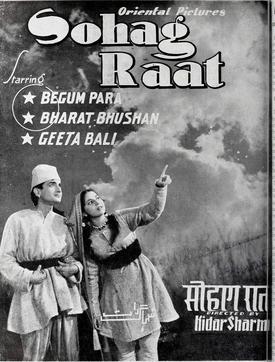
Suhaag Raat ( also called Sohag Raat, is a 1948 Hindi film of Indian cinema directed by Kidar Sharma. A romantic drama, it was the third film produced by Oriental Pictures and the first film to be distributed by the newly-founded company Varma Films. The story was a joint effort by F. A. Mirza and V. Sharma, while the screenplay, dialogue and lyrics were written by Kidar Sharma. The music was composed by Snehal Bhatkar, with cinematography by D. K. Ambre and D. C. Mehta. Geeta Bali made her debut in a lead feature film role with this movie, which co-starred Bharat Bhushan and Begum Para. The rest of the cast included Pesi Patel, Nazir Kashmiri, S. Nazir, Nazira and Shanta Kumar.
Shri Ram Bhakta Hanuman is a 1948 Hindi religious film produced and directed by Homi Wadia for Basant Pictures. The story was adapted from Valmiki's Ramayana by Shivram Vashikar and the dialogues were written by P. C. Joshi. S. N. Tripathi not only provided music for the film but acted the main role of Hanuman. The film starred Trilok Kapoor, S. N. Tripathi, Sona Chatterjee, Niranjan Sharma and Prabhash Joshi.

Hamari Yaad Aayegi is a 1961 Hindi romantic drama film, written and directed by Kidar Sharma. Produced under the banner of Show People, the director of photography was D. C. Mehta. The music was composed by Snehal Bhatkar with lyrics by Kidar Sharma. The film had the well-known title song "Kabhi Tanhaiyon Mein Hamari Yaad Aayegi", sung by Mubarak Begum. The film featured the director's son Ashok Sharma in the main role along with Tanuja, Anant Kumar, Madhavi, Sujata and Rajinder Dube.

Sunehre Din is a 1949 Indian Hindi-language romance film directed by Satish Nigam and produced by Madan Lal Mehrotr. The film stars Raj Kapoor, Roop Kamal, Nigar Sultana and Rehana, with Ramesh Sinha, Indumati, Heera, Kamalakant and Mahendra in supporting roles. The soundtrack was composed by Gyan Dutt. The film was based on a story written by Satish Nigam.
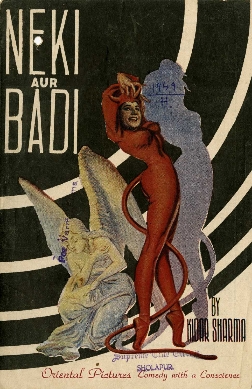
Neki Aur Badi is a 1949 Indian Hindi-language patriotic drama film directed by Kidar Sharma. The film stars Sharma with Madhubala and Geeta Bali. It was the only film in which Sharma played the male lead role.
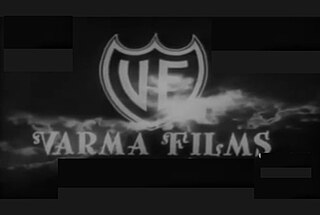
Varma Films was a film production and distribution company founded in Bombay, India. The company was predominantly involved in producing and distributing Hindi-language films and to a lesser extent distributing some Italian-language films with English subtitles in India.

Munshiram Varma (1902-1958) was a Bollywood film producer. He was one of six brothers that were founders/partners of Varma Films, a company predominantly involved with the production and distribution of Hindi-language films.
